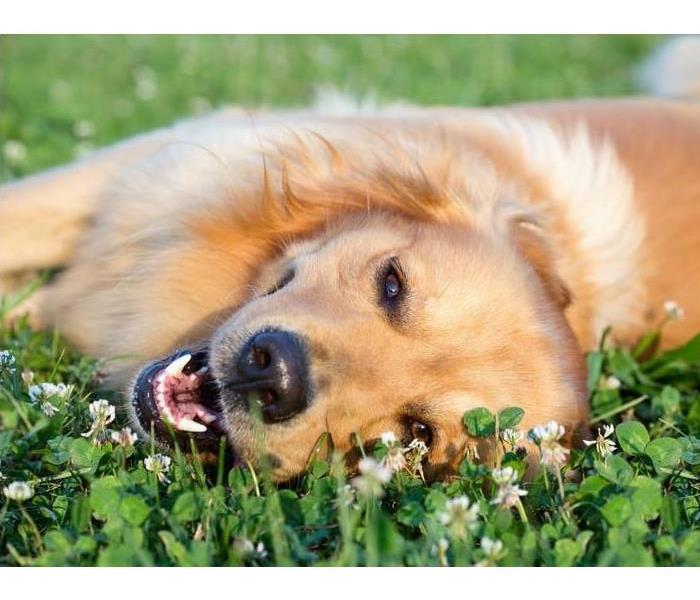Mold and Your Pets Tips
1/29/2019 (Permalink)
Molds are neither plants nor animals — they're fungi that play a vital role in the ecosystem by biodegrading organic matter. However, certain molds can cause health effects in pets who inhale or ingest them. In addition, mold is ubiquitous. It can grow in any moist, warm environment, both indoors and out. Mold can grow in everything from wet towels to sheet-rock, and around windows and floors. Outdoors it can be found in food thrown in the garbage, rotting tree stumps and in soil.
Mold can easily be licked or the spores inhaled wherever it grows. There are five species of mold that can cause health effects: Cladosporium, Penicillium, Fusarium, Aspergillus and Stachybotrys.
Treatment for Mold Exposure
If the mold was ingested, natural detoxifying agents such as glutathione, NAC, artichoke extract, milk thistle and SAMe (S-adenosylmethionine) can be very beneficial.
Preventing further exposure is the key to keeping your pet healthy going forward, so it's important to identify and eliminate or avoid all sources of potential mold.
Tips for Keeping Your Pet Safe From Mold
A good rule of thumb is to develop the habit of keeping anything your pet comes in contact with clean and dry:
- Keep pet food in a sealed container in a cold, dry area (freezer)
- Wash food and water bowls at least once a day and throw out plastic dishes
- Launder your pet's bedding frequently, and immediately if it becomes damp
- Wash pet toys once a week





 24/7 Emergency Service
24/7 Emergency Service